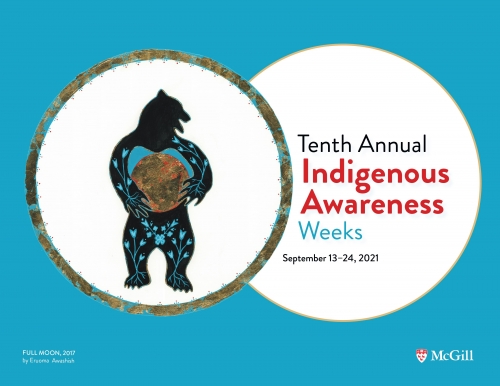McGill is holding its 10th annual Indigenous Awareness Weeks from Sept. 13 to 24. Among the weeks’ events was an international virtual round table discussing the United Nations Declaration on the Rights of Indigenous Peoples (UNDRIP). The round table featured many prominent Indigenous advocates from around the world, including Claire Charters, co-director of the Aotearoa New Zealand Centre for Indigenous Peoples and the Law at the University of Auckland; Eddie Cubillo, senior fellow at the University of Melbourne’s Law School; June Lorenzo, an Indigenous rights advocate, attorney, and chief judge in Zia Pueblo; Sheryl Lightfoot, North American representative to the United Nations Expert Mechanism on the Rights of Indigenous Peoples; and Romeo Saganash, member of Parliament for Abitibi-Baie James-Nunavik-Eeyou between 2011-2019.
The UNDRIP is a piece of international legislation that enshrines the individual and collective rights of Indigenous Peoples. It is almost unanimously supported throughout the UN: Australia, Canada, New Zealand, and the United States initially voted against the UNDRIP, but years later modified their position and expressed support of it. Ever since the General Assembly passed it in 2007, Indigenous populations around the world have pushed their respective governments to adopt the declaration and represent it in legislation.
Panellists overviewed the various issues facing Indigenous communities in their home countries, and also discussed the challenges of properly implementing UNDRIP.
“We do not have a written constitution in Aotearoa/New Zealand,” Charters said. “So, it is quite an unusual constitutional situation with respect to rights and not having rights being able to be enforced against the legislature.”
Cubillo explained that Aboriginal Australians currently have little sovereignty over their land due to British colonization.
“Australia is the only British colonized country that never formed a treaty with its First Nations peoples when illegally taking [Aboriginal] lands,” Cubillo said. “Australia was claimed under the Doctrine of Discovery, terra nullius […], a Latin term meaning land belonging to no one […], justifying acquisition by the British occupation without treaty or payment.”
Lorenzo noted that although the U.S. has seen some progress in implementing the declaration, it does not compare to the advancements made in Canada.
“[The Biden administration has] not gone nearly as far as Canada has to implement legislation,” Lorenzo explained. “U.S. representatives have just absolutely ignored the UN declaration.”
Through the identification and analysis of almost 200 federal court cases that integrate the UNDRIP into their rulings, Lightfoot’s research team at the University of British Columbia concluded that Canadian courts have made headway in implementing UNDRIP. Saganash pointed to the importance of Bill C-15, a bill passed by the Canadian Senate in June 2021 that requires the government to take all necessary measures to ensure Canadian laws are consistent with the UNDRIP.
“C-15 will set an international precedent in terms of the importance of the declaration,” Saganash said. “It is a big step forward in terms of recognizing that we respect Aboriginal and treaty rights in this country.”
The round table concluded with the panellists’ expressions of optimism toward the future and toward the recognition of the challenges that lie ahead. Yann-Allard Tremblay, round table moderator and professor in McGill’s Department of Political Science, emphasized the importance of acknowledging Indigenous strength.
“You all demonstrate the brilliance of our people,” Tremblay said. “And this is clearly fitting for the theme of this 10th annual Indigenous Awareness Weeks, which is to celebrate Indigenous excellence and resilience.”









